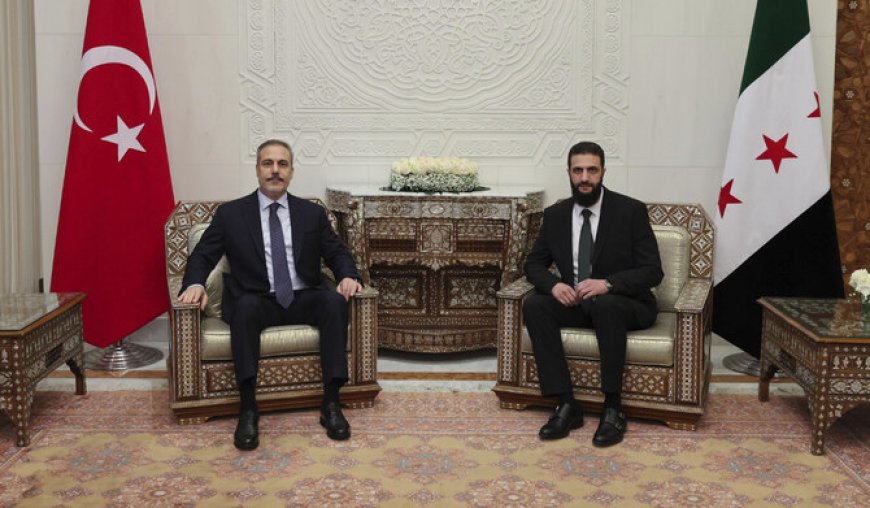Turkiye's Growing Influence in Post-Assad Syria
After 13 years of civil conflict, Bashar Assad's regime was overthrown last month, indicating a significant change in Syria's trajectory. Turkiye, who has been a staunch supporter of the Syrian National Army throughout the conflict, has assumed a significant position in the development of Syria's future. Nevertheless, its substantial influence raises substantial concerns regarding the long-term implications of its policies, regional stability, and power dynamics. The landscape is further complicated by the new administration, which is commanded by Ahmed Al-Sharaa of Hayat Tahrir al-Sham (HTS), a controversial group with extremist origins.

After 13 years of civil conflict, Bashar Assad's regime was overthrown last month, indicating a significant change in Syria's trajectory. Turkiye, who has been a staunch supporter of the Syrian National Army throughout the conflict, has assumed a significant position in the development of Syria's future. Nevertheless, its substantial influence raises substantial concerns regarding the long-term implications of its policies, regional stability, and power dynamics. The landscape is further complicated by the new administration, which is commanded by Ahmed Al-Sharaa of Hayat Tahrir al-Sham (HTS), a controversial group with extremist origins.
Turkiye's strategy is to eliminate Kurdish militants, notably the YPG, which it compares to the PKK, a designated terrorist organization. Although this security priority is in alignment with Turkish domestic politics, it poses a risk of escalating ethnic tensions within Syria. The strategic maneuvering of Ankara is underscored by the ongoing discussions with Syrian and US counterparts to resolve these issues. However, the unilateral emphasis on Kurdish groups diverts attention from broader stability and reconciliation efforts. The perceived alignment between Ankara and the newly inaugurated US President Donald Trump may foster short-term cooperation; however, it also poses a risk of alienating Kurdish allies who played a critical role in the defeat of ISIS.
Turkiye has initiated reconstruction initiatives in addition to security concerns, such as the reopening of its embassy in Damascus and the provision of infrastructure assistance. Although these endeavors are commendable, critics contend that Ankara's economic involvement is less altruistic and more about establishing influence and trade dominance in a war-torn Syria. Plans to facilitate the voluntary return of three million Syrian refugees to a country that remains unstable raise ethical and humanitarian concerns. Furthermore, the potential for peace is undermined by the threat of military action against Kurdish forces, which has the potential to perpetuate cycles of violence.
Although Turkiye's objectives in Syria are multifaceted, they are not without controversy. Creating a fragile post-Assad order that is susceptible to renewed instability is a risk associated with its prioritization of limited security objectives over inclusive governance. Ankara's actions must be scrutinized by the international community, and it must be held accountable for promoting long-term peace, reconciliation, equity, and security in Syria.













































